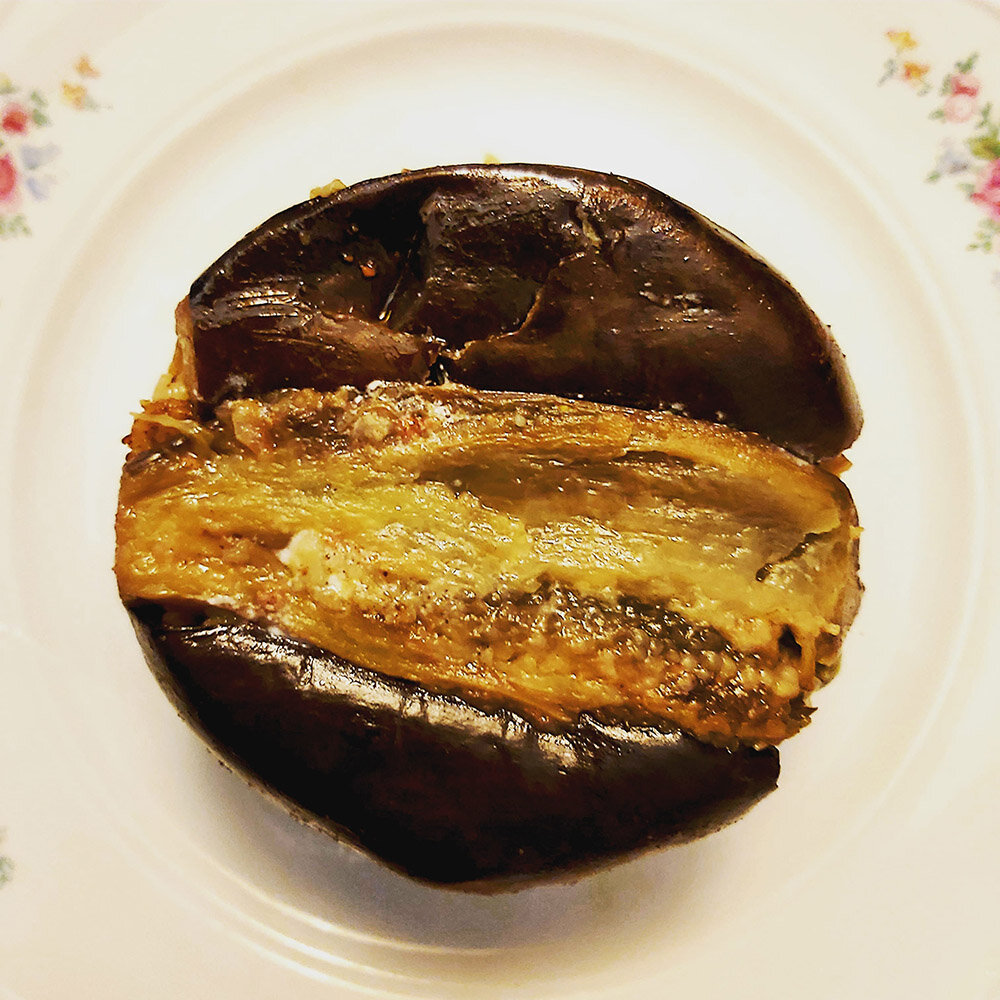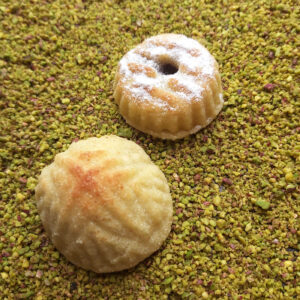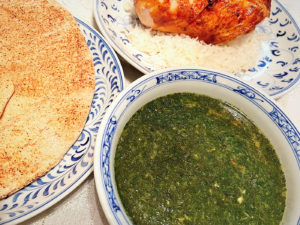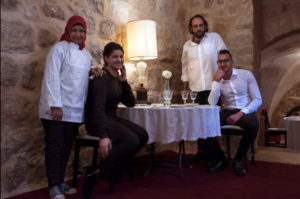
Fadi Kattan
Waking up on our magnificent Bethlehem mornings, one lives a few hours forgetting the harsh political realities. As the sun forces its way above the Jordan Valley, I choose to look defiantly beyond the settlement encroaching on the opposite hill and the Wall, towards the distant landmarks of Jerusalem or focus instead on the creamy-coloured walls of the old city around me.
The stirring of the new day brings with it an appetite for a delicious maqloubeh — our upside-down dish. It is aubergine season, mawsim beitinjan Battir! As I hear the hubbub of farmers and shoppers making their way to the market on the narrow streets around my home, I am already fantasizing about the purple treasures that Um Nabil will be selling this morning.
A funny feeling, in the heart of Bethlehem’s old city, there are reminders of so many different towns from the Levant and yet it has a unique charm, deriving from thousands of years of history, the mingling of local people and those from surrounding villages all discussing prices, exchanging recipes and excitedly challenging each other with a few words of culinary wisdom.

Nowadays, you will also hear the laments, the nostalgia, the complaints induced by the Wall… Al-Jidar! That horrible illegal construction tore through Palestinian land but also our souls and minds. It blocks our movement and with it most social and cultural interaction. There were the times before the Wall and after the Wall… and not even the perfect maqloubeh can make you forget it!
But let us pick up those small, plump aubergines from Um Nabil — just imagine them caramelizing in your pot. Then we will collect some fresh local awassi lamb meat from those expert brothers at Natsheh Butchers and finally select some mouth-watering spices from the fragrant shelves of Orient Mills store. Then, back to the kitchen….
Aubergine/Eggplant Maqloubeh
Yogurt sauce
For the broth:
- 2 cinnamon sticks
- 4 medium onions
- 4 tbsp olive oil
- 1/2 bunch parsley
- 3 dry laurel/bay leaves
- 2.5 pounds lamb meat without bone, cut into 9-10 pieces (or 3.5 pounds with bone, cut into 8 pieces) You can substitute with the following meats:
- 2 whole chickens (pounds cut into 8 of pieces)
- 2.5 pounds beef (pounds cut into 8 of pieces)
For the rice:
- 700g basmati rice
- 4 Aubergine/ Purple eggplant (medium sized)
- 500ml vegetable oil
- 2 tbsp olive oil
- 1 tsp cinnamon
- 1 tsp black pepper
- 1 tsp ground cardamom
- 1 tsp allspice
- ½ tsp cloves
- ½ tsp nutmeg
- 1 tsp cumin
- 3 tsp salt
- 3 large tomatoes
- 1 cup chickpeas (preferably dry that you soak overnight and cook beforehand)
For the yogurt sauce:
- 250 grams Greek yogurt
- 3 garlic cloves
- 1/2 tsp salt
- 1 tsp dried mint
Peel the eggplants and slice into long slices.
Sprinkle with a bit of salt and leave for 15 minutes.
Wash rice and soak in lukewarm water.
In a pot, heat the olive oil and brown the meat, add the spices, onion, parsley, cover with cold water and bring to a boil. Once the water is boiling, reduce to medium heat and cover the pot. Cook for 45 minutes.
In a frying pan, heat some oil and fry the eggplant slices. Place on some kitchen paper to absorb excess oil.
Once the meat is cooked, remove the meat from the broth and pass the broth through a sieve. Discard the garnish that was in the broth.
Drain the rice and season with the spices and olive oil.
In a deep pot, place slices of tomatoes in the bottom then add the chickpeas and the aubergines and finally the meat in layers.
Spread the rice on top and level the surface.
Add the boiling broth on the rice, covering 1 cm above the rice. If the broth is not enough, you can add some boiling water.
Cook on high heat for a few minutes and then reduce to low heat, cover and cook for 35 to 30 minutes.
Check the maqloubeh by tasting the rice and tilting the po slightly to make sure there is liquid.
Turn off the heat and keep the pot covered for ten minutes.
Drain the garlic in a fine sieve, crush the garlic and stir together, the garlic, salt and yogurt. Sprinkle the dried mint on top.
Your maqloubeh is ready for flipping. Flip over a large serving plate and keep the pot on for a few minutes until the maqloubeh is set on the plate.
Sahtain صحتين !





























